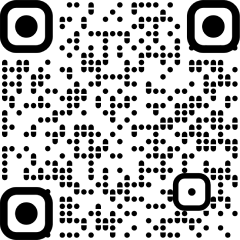The Delhi High Court has directed the Consortium of National Law Universities (NLUs) to revisit the Common Law Admission Test (CLAT) 2025 merit list, originally published on December 7, 2024.
The Court’s order follows a writ petition challenging the final answer key for the CLAT 2025 undergraduate examination and seeking a revision of the petitioner’s result. The petitioner argued that discrepancies in the answer key affected their ranking, potentially impacting admission to more prestigious institutions.
Errors identified in CLAT 2025 question paper
The court identified significant issues with two specific questions in Set A of the CLAT 2025 exam paper:Question 14: Justice Jyoti Singh upheld the petitioner’s claim, agreeing with the Expert Committee’s assessment that option ‘C’ was the correct answer. The court ruled that marks should be awarded to all candidates who selected this option.
“Since the Court has upheld option ‘C’ as the correct answer, which was also the view of the Expert Committee, benefit cannot be restricted only to the petitioner and will extend to all candidates who have opted for option ‘C’,” the judgment stated, as reported by Bar and Bench.
Question 100: The court directed that this question be excluded from evaluation. It accepted the Expert Committee’s advice, citing blatant errors that rendered the question invalid.
Implications for other CLAT 2025 candidates
The court’s orders necessitate revisions to the merit list, affecting all candidates who attempted these questions. Justice Singh emphasized that ignoring such clear errors would amount to an injustice.. Consequently, the Consortium of NLUs has been instructed to extend the revised marking scheme to all affected candidates, not just the petitioner.
The petitioner’s plea also sought the court’s intervention for other disputed questions, including numbers 37, 67, 68, 89, 99, and 102. While objections to questions 89, 99, and 102 were upheld during the initial review process, the petition also demanded corrections to the remaining contested questions and a reassessment of the petitioner’s marks and rank.
In addition, the petition raised concerns about the evaluation process and the transparency of the CLAT 2025 final answer key. A representation highlighting these discrepancies was submitted on December 9, 2024, alongside demands for the formation of a Grievance Redressal Committee to address candidate grievances.
Court’s position on judicial intervention
While the Supreme Court has cautioned against frequent interference in academic matters, the Delhi High Court justified its intervention due to the blatant nature of the errors in the answer key. The judgment highlighted that courts must exercise restraint but can act when evident mistakes compromise the fairness of results.
Consortium’s response and next steps
The Consortium of NLUs acknowledged the court’s directives and announced a delay in the release of the first admission list, which was initially scheduled for December 26, 2024. According to various media reports and social media responses from candidates, the Consortium is consulting legal experts to determine the most appropriate course of action. In its communication to candidates, the Consortium reportedly stated, “We acknowledge that this development may create some uncertainty, and we assure you that the Consortium is committed to ensuring transparency and fairness in the process.”


